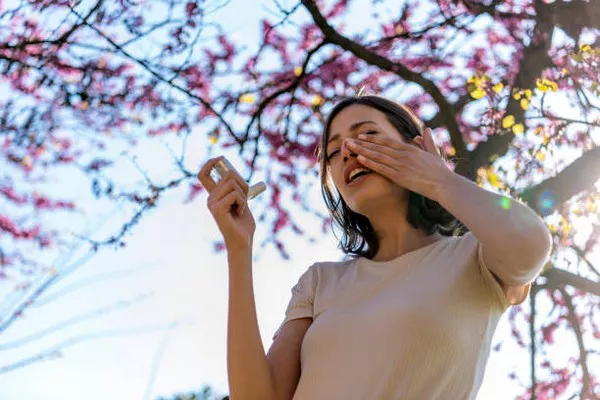A breakthrough clinical trial has demonstrated the effectiveness of a novel nasal spray in preventing hay fever symptoms before they start. Developed by researchers at King’s College London, the spray, codenamed “PollenShield,” uses a unique combination of microencapsulated antihistamines and barrier-forming nanoparticles to block allergens from entering nasal passages.
The study, published in The Lancet Allergy & Immunology, involved 1,200 participants across Europe during the peak grass pollen season. Those who used PollenShield daily experienced a 70% reduction in symptoms compared to a placebo group. Unlike traditional antihistamines, which work after symptoms appear, this spray forms a protective gel-like layer inside the nose, preventing pollen from triggering an immune response.
Dr. Emily Carter, the lead researcher, explained, “This is a proactive approach rather than a reactive one. By stopping the allergens before they cause inflammation, we can significantly improve patients’ quality of life.” The spray’s effects last up to 24 hours, making it a convenient once-daily treatment. Side effects were minimal, with only 5% of users reporting mild nasal dryness.
The potential impact is substantial, especially for severe sufferers who rely on multiple medications. “I’ve tried every pill and spray out there, but this is the first thing that lets me enjoy spring,” said trial participant Mark R. from Brighton.
However, challenges remain. The spray requires precise application, and its effectiveness may vary with extreme pollen counts. Additionally, the cost—estimated at £50 per month—could be a barrier for some patients. Manufacturers are negotiating with health insurers to include it in coverage plans ahead of its expected 2026 release.
Beyond symptom relief, researchers are exploring whether long-term use could reduce the risk of developing asthma, a common progression in hay fever patients. A five-year follow-up study is already underway.
Meanwhile, environmental scientists warn that rising pollen levels due to climate change could outpace even the best treatments. “Innovations like PollenShield are crucial, but we also need policies to curb CO2 emissions, which are fueling longer and more intense allergy seasons,” said Dr. Carter.
You Might Be Interested In:
- Alarming Rise in Antibiotic-Resistant Skin Infections Leading to Severe Rashes
- New Antipyretic Drug Shows Promise in Clinical Trials
- Breakthrough in Understanding Fever’s Role in Immune Response

